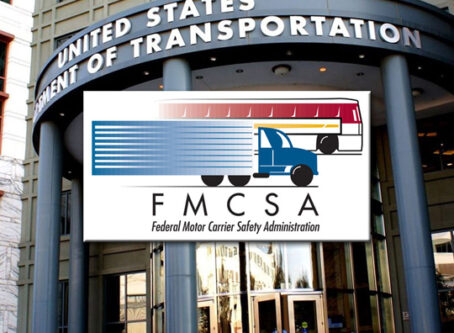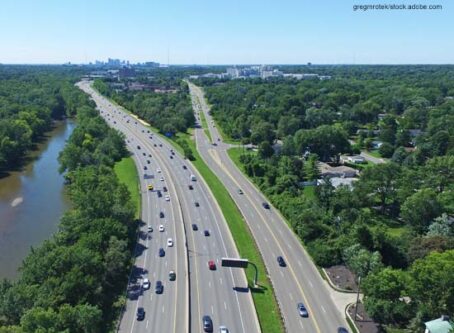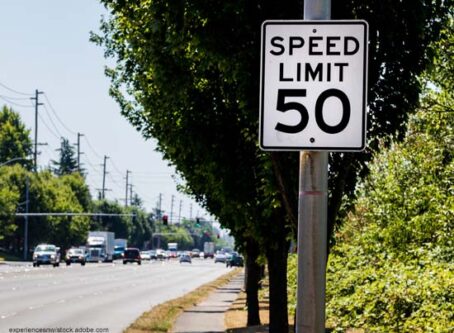Traffic camera rule changes considered in seven states
State legislatures around the country are discussing action on the use of automated traffic cameras to ticket drivers.
More than 500 communities around the country employ the use of red-light or speed cameras to nab drivers who disobey traffic rules, the Insurance Institute of Highway Safety reports.
Officials with the Owner-Operator Independent Drivers Association say the focus on the revenue-generating devices ignores the more logical and reasoned approach to roads and traffic: keep traffic moving in as safe a manner as possible.
Below is a sampling of traffic camera legislation introduced since the first of the year in states from Florida to New York.
Florida
One Florida House bill calls for banning the state, counties, and municipalities from using red-light traffic cameras.
There are about 50 local governments around the state operating more than 500 red-light cameras, according to a recent legislative summary analysis. Fine amounts of $158 are dispensed for actions that include turning right on red, failing to come to a complete stop, or crossing the line where a camera is focused on an intersection.
Numbers available from the Florida Department of Highway Safety and Motor Vehicles show that agencies issued 1.1 million notices of violation over a 12-month period.
In addition, the department’s numbers show the total crashes occurring at intersections before and after red-light cameras were installed has increased by 15 %.
Sponsored by Rep. Anthony Rodriguez, R-Miami, HB6083 would repeal the program that allows the use of the ticket tool.
Ending programs around the state could cost local governments $76.8 million annually.
Rodriguez’ bill awaits consideration in committee.
Indiana
Speed cameras could soon be authorized along certain stretches of roadway throughout the state.
The Senate Homeland Security and Transportation Committee voted on Tuesday to advance a bill to authorize the Indiana State Police to set up traffic cameras in highway work zones to enforce speed limits.
State law now authorizes fines between $300 and $1,000 for speeding in work zones.
According to State Police data, there were 892 work zone injury crashes in 2018 – more than double from 2013.
The legislation, SB268, calls for vehicle owners to receive fines in the mail of up to $150 for exceeding the posted speed by more than 10 mph. Traffic cameras devices would be in use when workers are present.
“The goal is to try to get speeds down the best that we can in work zones,” Sen. Jon Ford, R-Terre Haute, testified.
Ticket camera revenue would be routed to a new trooper family relief fund.
SB268 awaits further consideration in the Senate. The House version, HB1286, is in in the House Roads and Transportation Committee.
Kansas
A Kansas Senate bill would outlaw the use of red-light cameras.
Specifically, the bill would prohibit cities and counties from using the devices as of July 1, 2020.
Sponsored by Sen. Richard Hilderbrand, R-Galena, SB247 is in the Senate Transportation Committee.
Maryland
Multiple efforts underway at the Maryland statehouse cover the use of traffic control signal monitoring systems.
There are six counties around the state that have red-light traffic camera programs. The city of Baltimore and 22 other jurisdictions use the devices. Violators face fines up to $100.
HB46 would repeal the state’s authority to suspend registration for violations recorded by red-light cameras.
The bill is scheduled to receive a hearing Feb. 6 in the House Environment and Transportation Committee. The Senate version, SB177, is scheduled for a hearing Jan. 28 in the Senate Judicial Proceedings Committee.
A separate bill, HB273, would add permission to post speed cameras along a roadway east of Washington, D.C. The authorization would apply for the stretch of state Route 382 in Prince George’s County between Mount Calvert Road and Molly Berry Road.
The bill is in the House Environment and Transportation Committee.
Missouri
Two Missouri bills cover the use of traffic cameras.
As of Aug. 28, 2020, SB709 would prohibit use of the devices. Communities with ticket camera systems already in place would have one year to complete or terminate contracts. At that time, they would be required to comply with changes in the legislation.
The bill would not affect data and information recorded at weigh stations.
SB709 and the House version, HB1754, await assignment to committee.
New York
A pair of bills in New York would allow the state to move forward with placing speed cameras in construction zones.
Data from the New York State Department of Transportation shows from 2010-16 there were 3,450 wrecks in work zones on state highways. There were 50 fatalities and more than 1,100 injuries to drivers and workers.
“Stronger enforcement of speeding in work zones has the potential to significantly reduce both the incidence of motorists and worker fatalities while training better overall motorist behavior,” Assemblyman William Magnarelli, D-Syracuse, wrote in justification for the change.
The bills, A8832 and S5223, are in their respective chamber’s transportation committee.
Tennessee
One Tennessee House bill would ban use of traffic cameras in the state.
There are more than one dozen locales throughout the state that use automated enforcement devices to enforce traffic laws.
Sponsored by Rep. Andy Holt, R-Dresden, HB1656 would prohibit the use of red-light and speed cameras.
The proposed rule would result in the loss of about $6 million in local revenue for affected communities around the state, according to a fiscal note attached to the bill.
The bill is in the House Transportation Committee.









